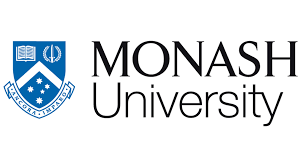Monash University: World Health Summit Regional Meeting Spurs Historic Movement Towards Prioritizing Equity, Community, and Resilience in Healthcare
The World Health Summit Regional Meeting 2024, hosted by Monash University, was held in Melbourne from April 22-24 under the theme ‘Shape the future of health across Asia and the Pacific’.
The event set a new record attracting over 1250 delegates from over 40 nations. More than 200 speakers delivered 40 plus sessions focused on identifying strategies to improve global health and health inequities in the Asia-Pacific region.
Monash University was proud to convene this world-class event which was structured around the following key themes that are fundamental to the University’s Impact 2030 strategy:
- Thriving communities and Health: Priorities for living well and living well together.
- Climate change and Health: Priorities for responding to the climate emergency.
- Geopolitics and Health: Priorities for safety, equity and justice across borders.
The tone was set early when both the Director-General of the World Health Organization, Dr Tedros Adhanom Ghebreyesus, and Australia’s Minister for Foreign Affairs, Senator the Hon Penny Wong, used their opening ceremony address to acknowledge the importance of the Regional Meeting in supporting dialogue that is critical to health in the Asia-Pacific region.
These included the health of indigenous peoples, addressing persistent health inequities within and between countries and strengthening regional capacity to address shared health threats such as the impacts of climate change.
Other highly respected leaders taking part included Dr Saia Ma’u Piukala, newly appointed Regional Director for the WHO Western Pacific Office in his first 100 days of office, Dr Helen Clark, Former Prime Minister of New Zealand and Chair of the Global Commission on Drug Policy; Sir Michael Marmot, Director, UCL Institute of Health Equity and Professor Marcia Langton Associate Provost at the University of Melbourne.
The Regional Meeting was held against a backdrop of increasing concern about the ability of WHO member states to reach consensus on an improved model of global health governance and cooperation, with the outcome of pandemic accord negotiations approaching 11th hour uncertainty. But here in Melbourne an extraordinary level of collegiality, respect, shared purpose and commitment to listening and learning better together to improve health across the region shone through the three-day programme of events.
Co-President of the WHS Regional Meeting, Professor Sophia Zoungas, Head of the School of Public Health and Preventive Medicine, said that the meeting was a success on a number of levels.
“We had some of the most significant players in global health in Melbourne for three days fully targeted on developing ways to tackle health inequity in both the Asia-Pacific region and globally,” she said.
“I think we’ve elevated global and planetary health as issues for all who work in health care – whether you’re working in community engagement, acute care, health policy or international development and diplomacy – our work is all intrinsically linked and we have much to learn from one another. You really got a sense that people came away with a new resolve to do more to break down these silos.”
Feedback from those who attended the meeting has been tremendously positive, and social media has been alight with thoughtfully considered summaries from many who attended.
Ramsay Hospital Research Foundation:
“With many countries experiencing diminishing trust in Governments and Institutions to prioritise healthcare, there is an urgent need to foster resilient communities to build trust:
- Directly involving communities in policy implementation, ensuring their voices and needs are heard, is a vital step towards addressing broader social determinants of health.
- There is an importance that must be placed on advancing Indigenous people’s rights and facilitating their access to clinical trials and co-design opportunities.
- The input of those with lived and living experience is an important part to redesigning effective care.”
Mayor Cr Lana Formoso, Mayor, City of Greater Dandenong:
“Culture, human behavior, governance, politics, law, regulations and institutional frameworks are equally key aspects of global health……we need to start thinking “Glocally” !!! We ALL have an important role to play in global health.”
Caterina Giorgi, CEO, Foundation for Alcohol Research And Education:
“Health outcomes are most influenced by power, politics and leadership (or lack thereof). But discussions about health, particularly at the domestic level still largely focus on the provision of healthcare services. We’re in fierce agreement now that the structures, systems and ways of working that we have are not working for our communities as we face these new layers of complexity.
As we move forward – the connections that we make are important. Making space to come together is important. It’s the many incidental interactions where we can connect and build trust [that lead to] opportunities to collaborate and make a difference.
These events (WHSMelbourne2024) don’t give us all the answers – but they allow us to learn from each other and share”
These reflections from our colleagues outside of the University have been particularly encouraging for us at Monash as we now turn to the work of formally disseminating and translating the outcomes of the meeting into actions and impact.

